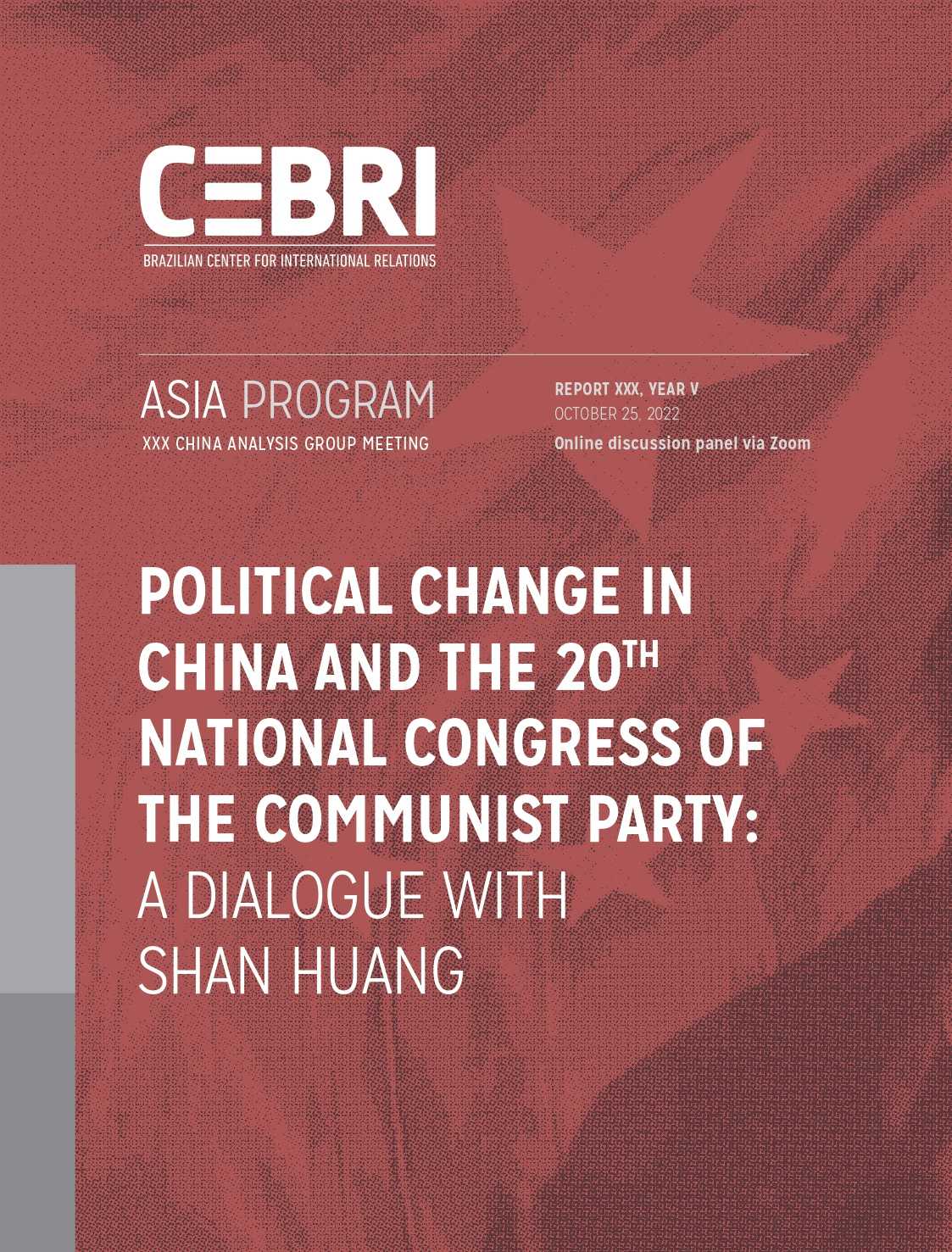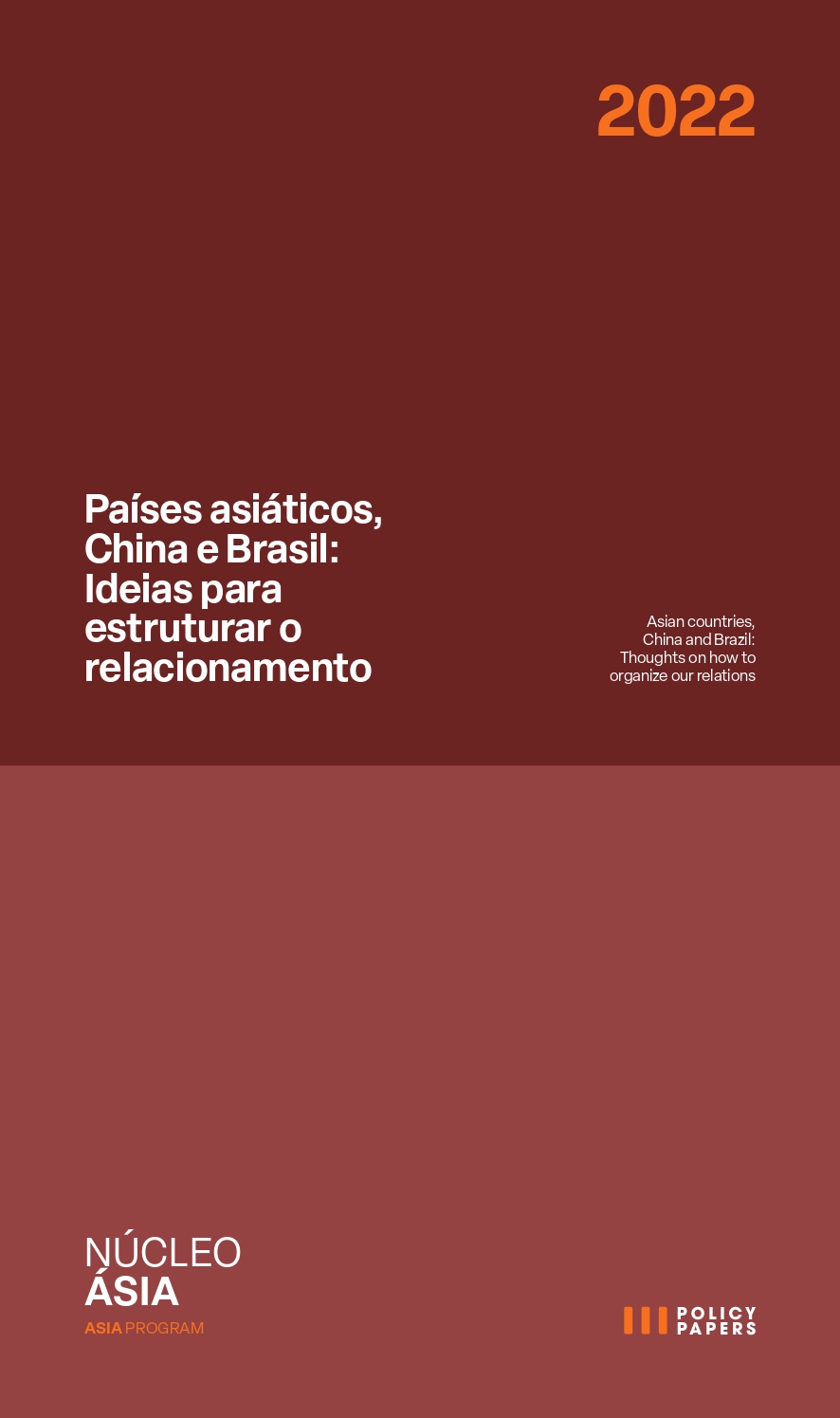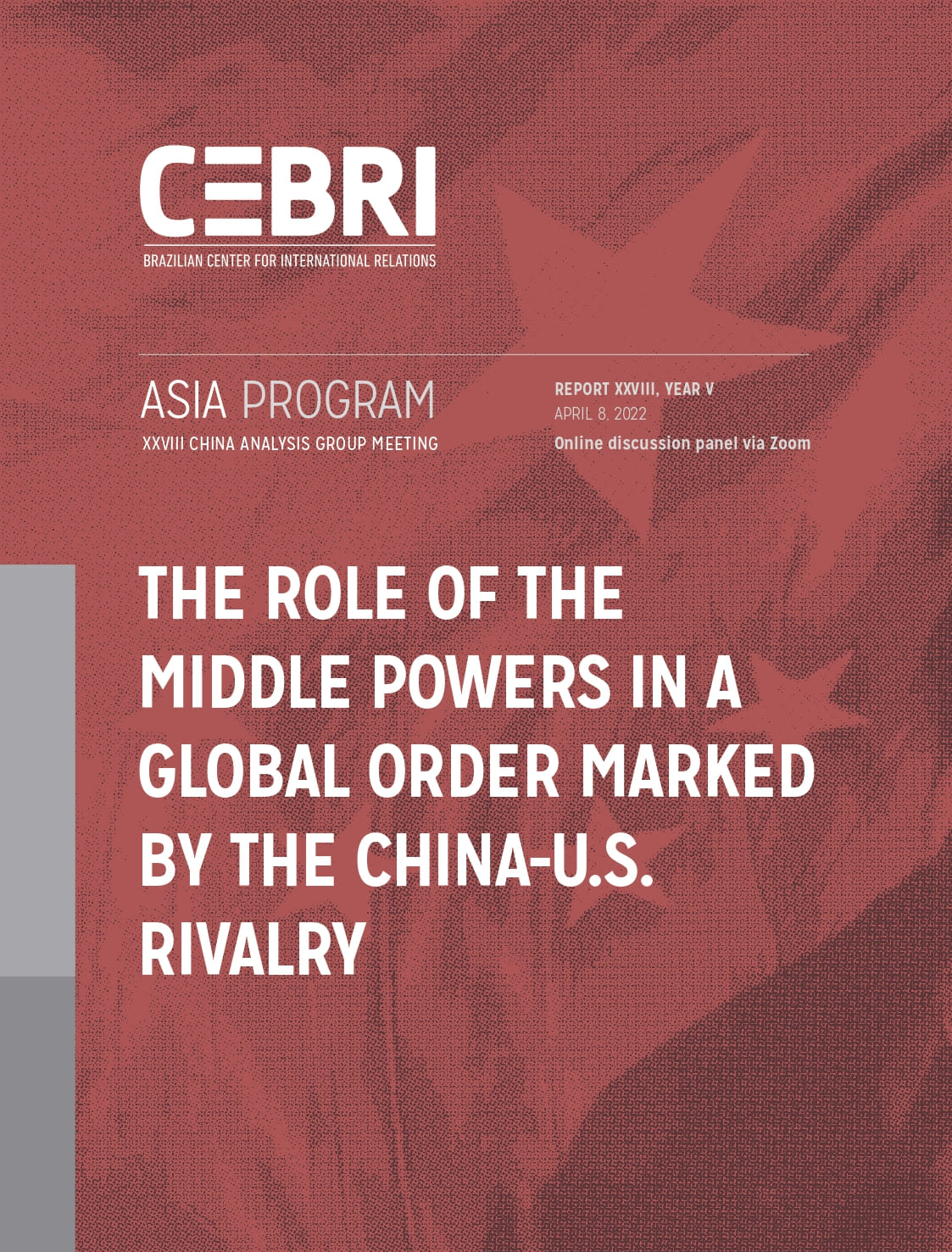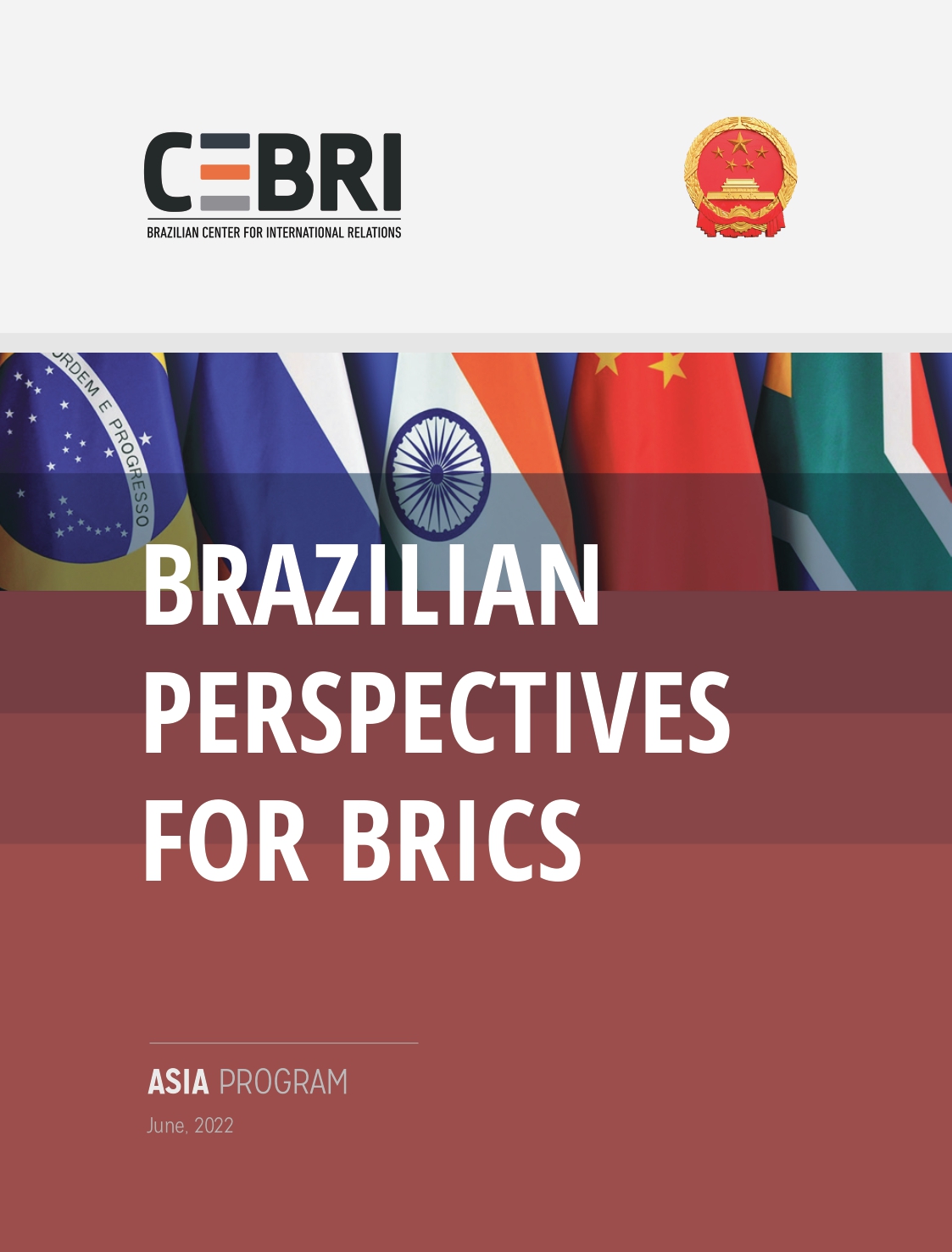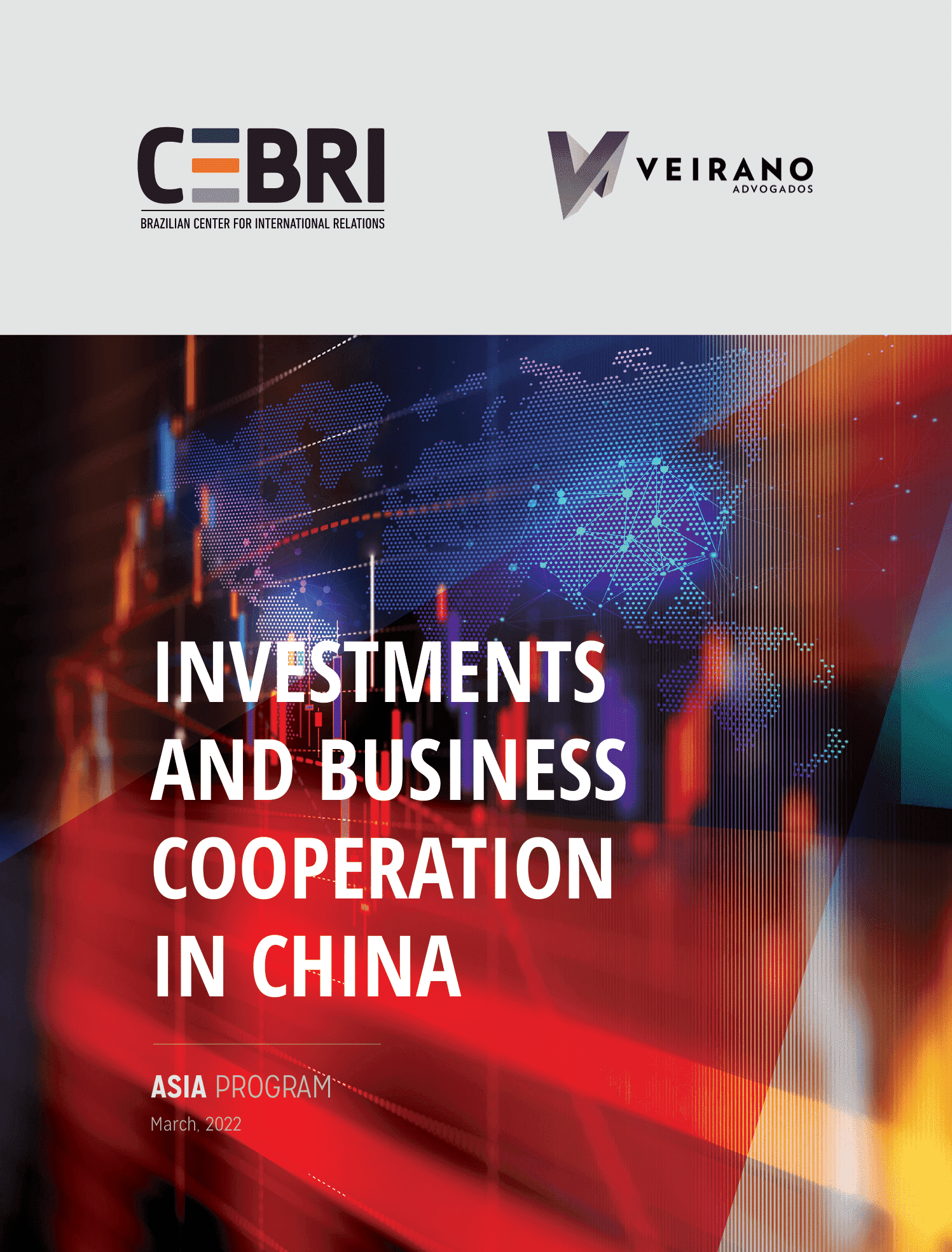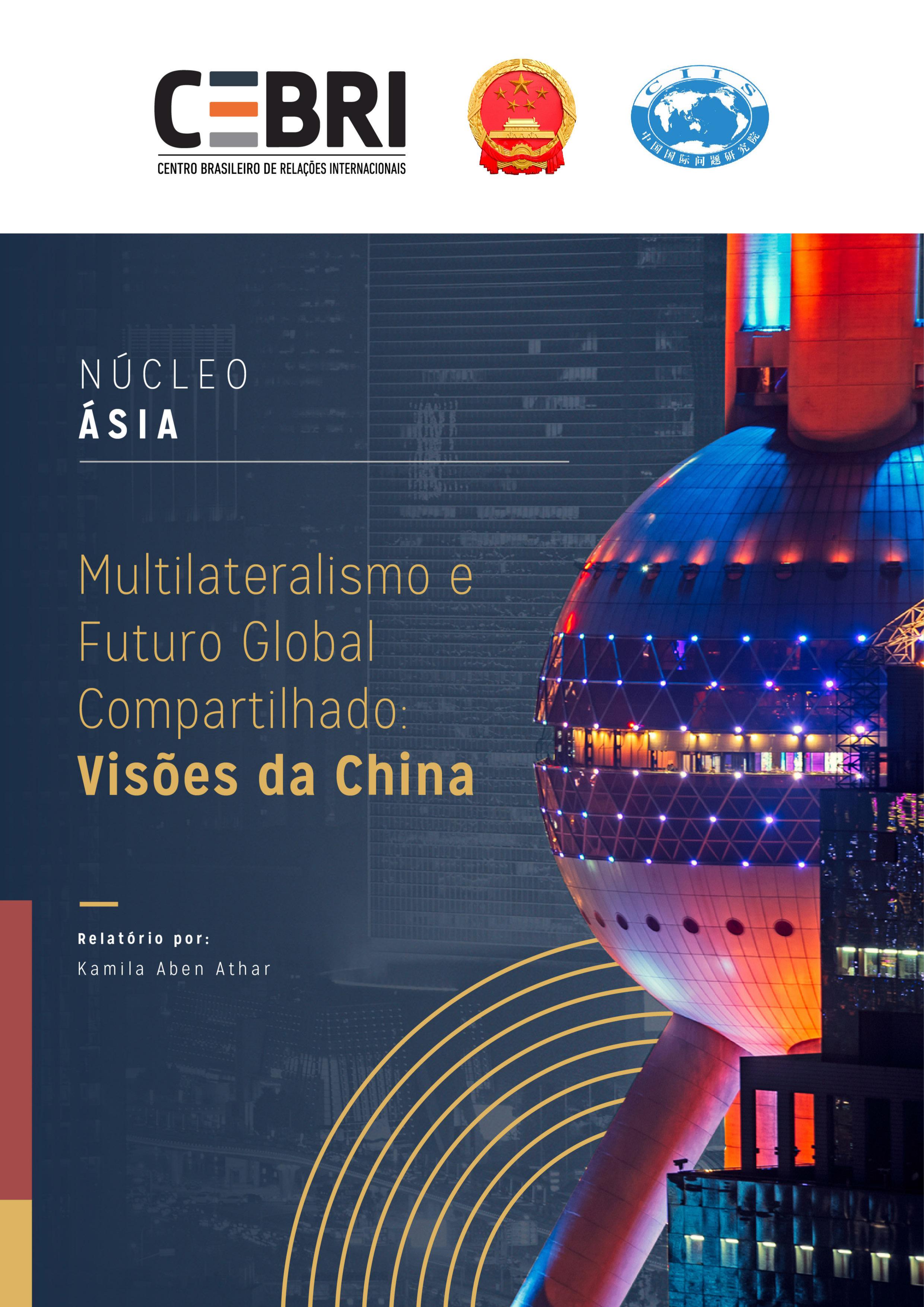Policy Papers
Brazil-China: The State of the Relationship, Belt and Road, and Lessons for the Future
- Asia
- 10 september 2019
CEBRI is pleased to present the publication"Brazil-China: The State of the Relationship, Belt and Road and Lessons for the Future". The study brings two analyses on the history, state, and possible scenarios of the Sino-Brazilian relationship, and the impact of the Belt and Road Initiative on China's global performance and potential opportunities generated for Brazil.
The first text, authored by Ambassador Marcos Caramuru de Paiva, former ambassador of Brazil to China, partner and manager of KEMU Consultoria, and member of CEBRI's International Board. It presents a current panorama of the Brazil-China relationship and addresses the Chinese perception of Brazil, expectations around the direction of the relationship and the effort of Brazilian state governments to connect with China and its companies. It also brings an analysis of the BRICS process and a look into the future and how Sino-Brazilian relations impact our international insertion.
The second text was written by Clarissa Lins, founding partner of Catavento Consultoria and Senior Fellow of the Infrastructure and Energy Program of CEBRI and Executive Director of the Brazilian Petroleum, Gas and Biofuels Institute (IBP), and Guilherme Ferreira, partner of Catavento Consultoria. It provides a deep analysis of the development of the Belt and Road Initiative, looking into both results and questions. It also highlights the Brazilian assets to attract investments in infrastructure and energy, taking into account the opportunities generated in the context of the Belt and Road Initiative.
CEBRI is pleased to present the publication"Brazil-China: The State of the Relationship, Belt and Road and Lessons for the Future". The study brings two analyses on the history, state, and possible scenarios of the Sino-Brazilian relationship, and the impact of the Belt and Road Initiative on China's global performance and potential opportunities generated for Brazil.
The first text, authored by Ambassador Marcos Caramuru de Paiva, former ambassador of Brazil to China, partner and manager of KEMU Consultoria, and member of CEBRI's International Board. It presents a current panorama of the Brazil-China relationship and addresses the Chinese perception of Brazil, expectations around the direction of the relationship and the effort of Brazilian state governments to connect with China and its companies. It also brings an analysis of the BRICS process and a look into the future and how Sino-Brazilian relations impact our international insertion.
The second text was written by Clarissa Lins, founding partner of Catavento Consultoria and Senior Fellow of the Infrastructure and Energy Program of CEBRI and Executive Director of the Brazilian Petroleum, Gas and Biofuels Institute (IBP), and Guilherme Ferreira, partner of Catavento Consultoria. It provides a deep analysis of the development of the Belt and Road Initiative, looking into both results and questions. It also highlights the Brazilian assets to attract investments in infrastructure and energy, taking into account the opportunities generated in the context of the Belt and Road Initiative.
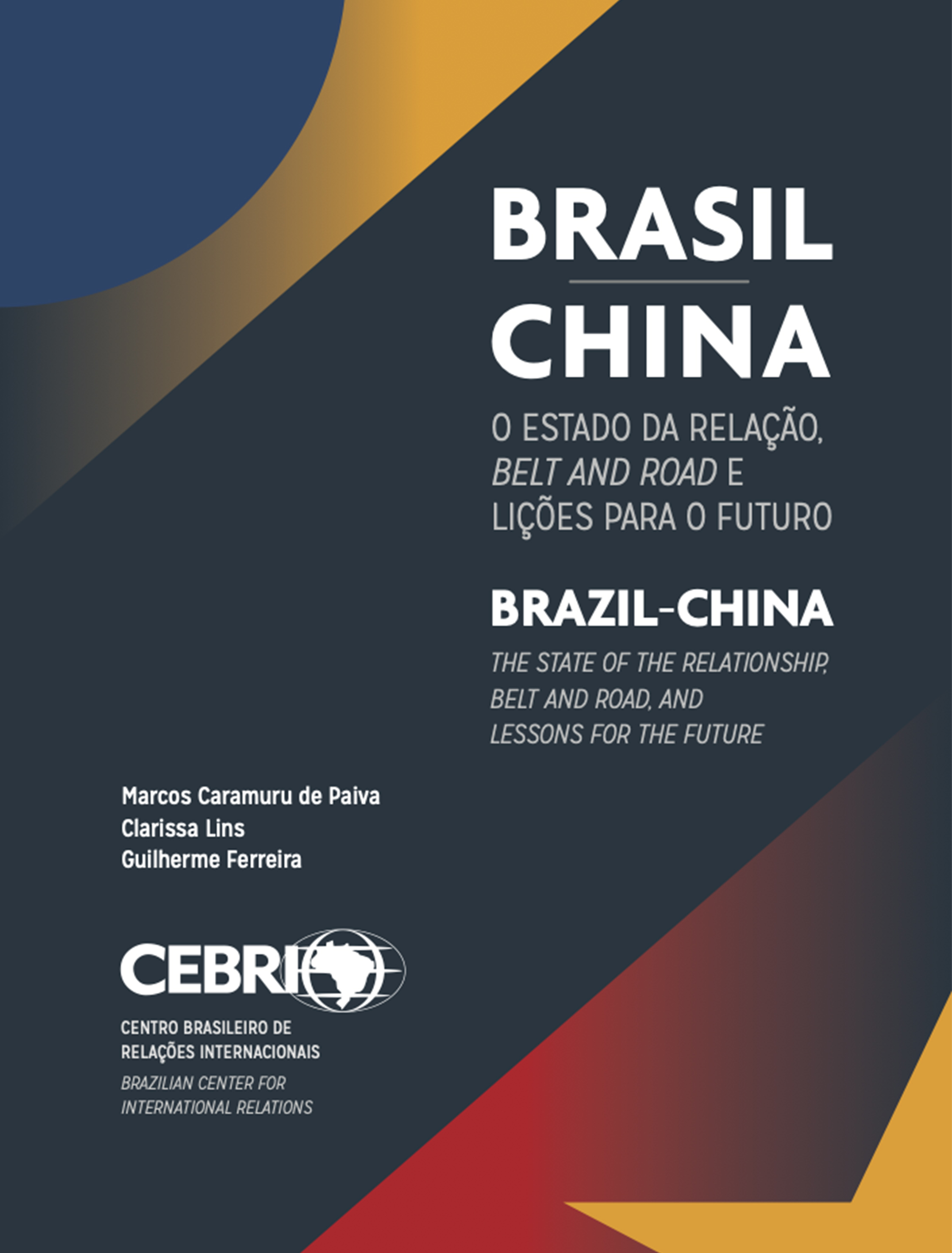




6932f633dad5f.png)
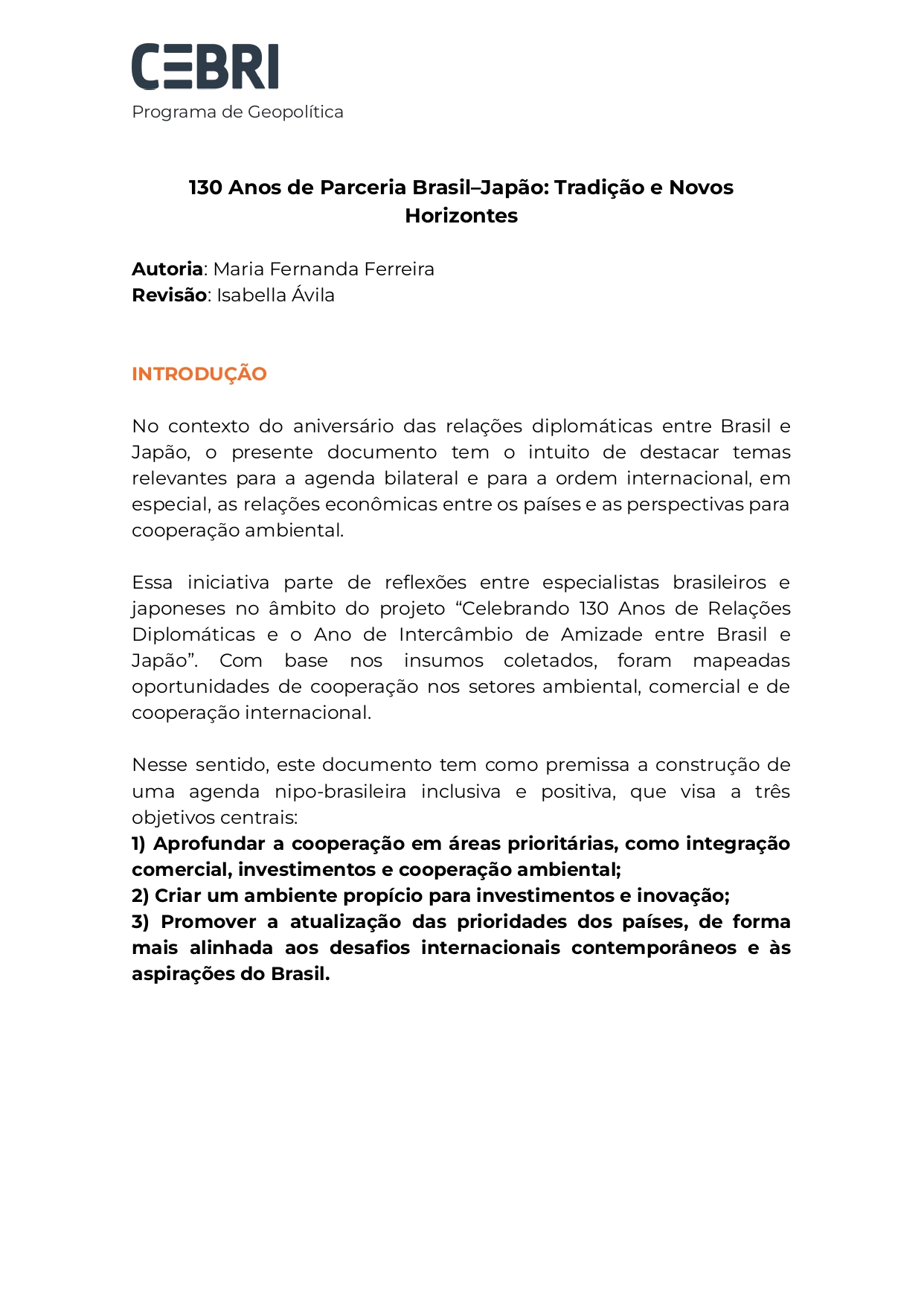
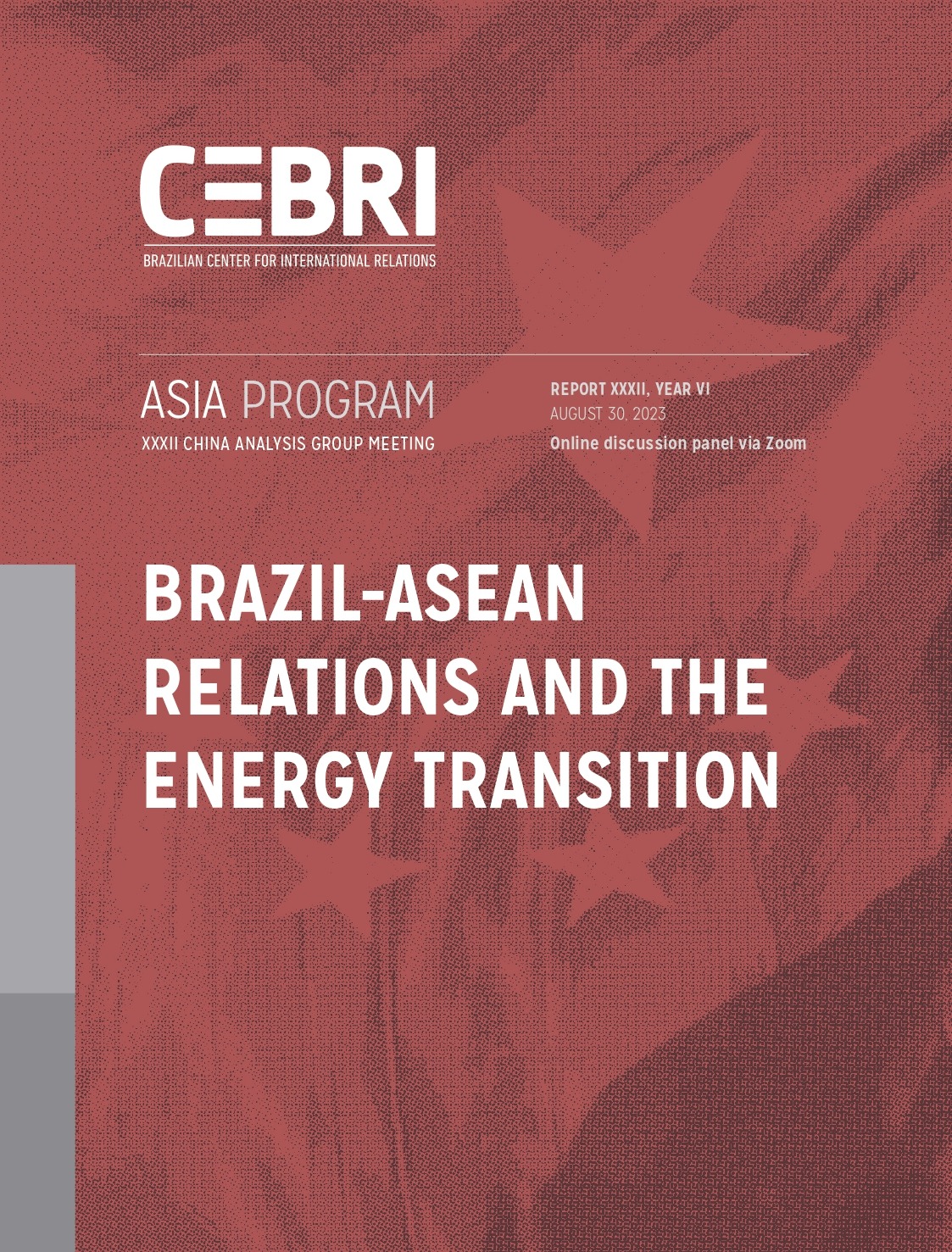
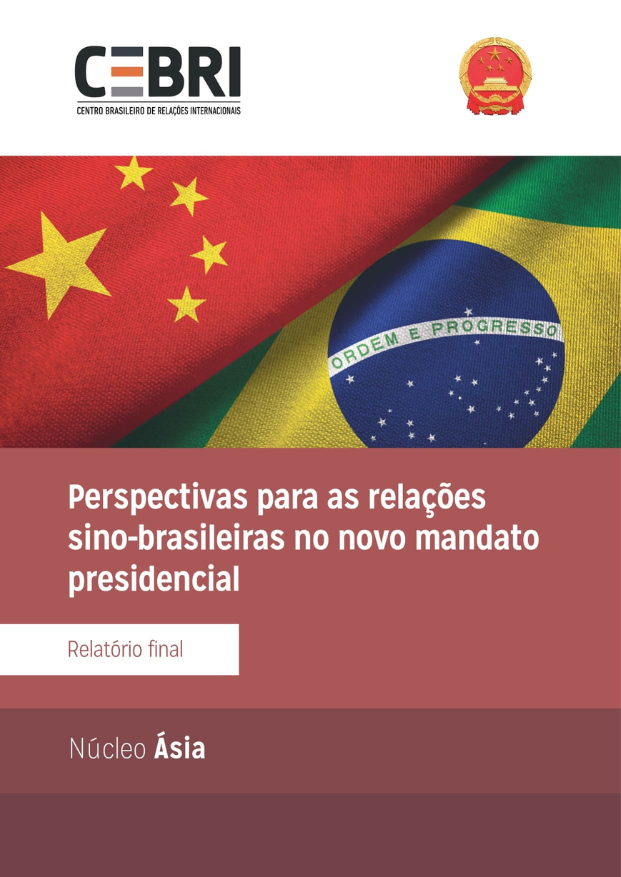
63dd462196071.jpg)
